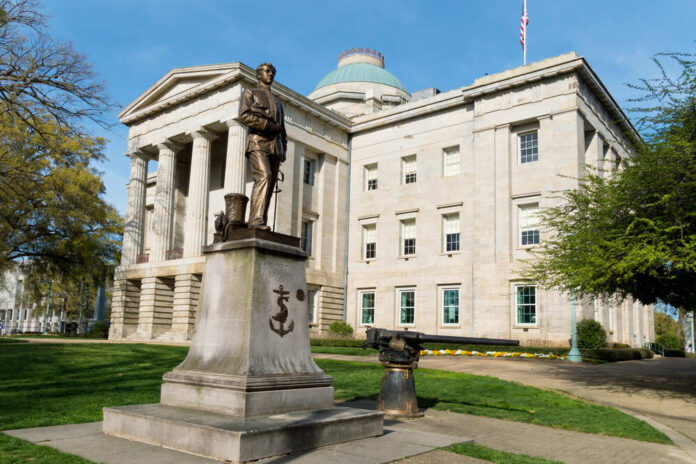
A North Carolina bill that increases penalties for rioting will become law without the signature of Gov. Roy Cooper (D).
House bill 40, legislation designed to impose penalties for inciting or participating in riots, was presented to Cooper on March 10, 2023. He stated he would neither sign nor veto the bill, having blocked a similar measure in 2022.
“I acknowledge that changes were made to modify this legislation’s effect after my veto of a similar bill last year,” Cooper said. “Property damage and violence are already illegal and my continuing concerns about the erosion of the First Amendment and the disparate impacts on communities of color will prevent me from signing this legislation.”
Increased punishments for rioting in North Carolina will become law later this year as Democratic Gov. Roy Cooper announced on Friday he wouldn’t use his veto stamp on legislation that’s similar to a bill he successfully blocked in 2021.https://t.co/M7GQUzudPZ
— The Virginian-Pilot (@virginianpilot) March 18, 2023
The bill establishes new felony and misdemeanor charges for individuals who engage in or incite a riot. The charges vary in severity depending on whether certain thresholds for property damage are met, whether the person used a weapon and whether death resulted from the riot.
In 2022, Cooper vetoed the previous version of the Prevent Rioting and Civil Disorder Act, House Bill 805, arguing that the bill was “unnecessary” and “intended to intimidate and deter people from exercising their constitutional rights to peacefully protest.”
House Bill 805 is similar to House Bill 40, but it was modified to protect the rights of people to participate in lawful protests.
Unlike the 2022 bill that permits law enforcement to hold accusers in jail for 48 hours, the 2023 legislation shortens the time to 24 hours.
Both bills, however, include a section clarifying that individuals present at a riot who do not commit an “overt act” cannot be convicted.
The legislation is a response to several protests that developed into riots in 2020.
After the death of George Floyd in 2020, multiple protests in North Carolina turned violent when protesters began to damage law enforcement vehicles, forcing police officers to disperse tear gas.
North Carolina House Speaker Tim Moore (R) praised the anti-rioting bill, writing, “Nearly three years after violent protests devastated communities and businesses in North Carolina, I am pleased that this bipartisan legislation will become law.”
Anyone who engages in violence towards others or damages property should receive prosecution. Protests are good; riots are not.














